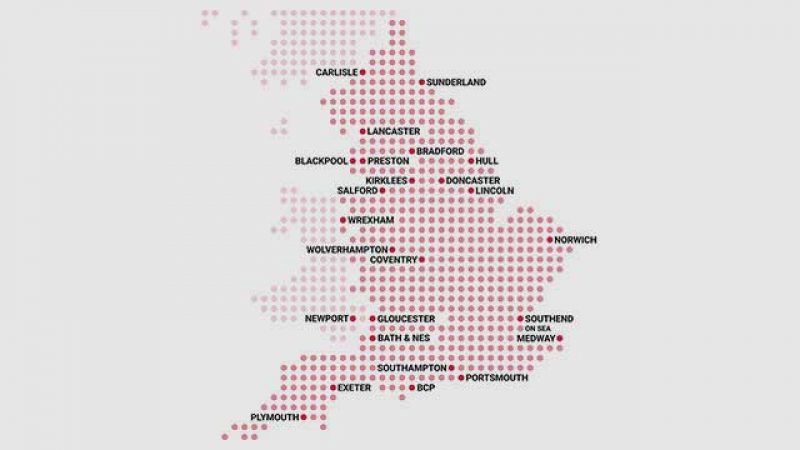With projects now coming to the fore, the opportunities within the levelling up agenda are beginning to emerge, with many places leading the charge in what is possible. However, the process for securing levelling up funding is too short term in outlook, creating confusion and uncertainty, which is making it unnecessarily challenging for local government to actually deliver levelling up at a regional level.
Key Cities, the network representing urban living in the UK, is acutely aware of the impact posed by the Levelling Up and Regeneration Bill and the UK Shared Prosperity Fund (UKSPF), having conducted a programme of activity to get to the root of the opportunities and challenges its 25 member local authorities must embrace. Through the programme, the network has explored how towns and cities are harnessing the levelling up agenda to create better places and improve the quality of life across the UK, and most importantly, what these places really need.
First and foremost, the UK’s new Prime Minister needs to prioritise the economic performance of the UK’s cities and regions, investing appropriately in skills, innovation and infrastructure. What follows are our requests to the UK’s new Prime Minister:
1. Further devolved powers, across combined authorities and municipal authorities, are critical to levelling up, providing more flexibility and autonomy in how the funding is spent and allowing cities and towns to leverage allocated funding with private sector partnerships
2. The allocation of funds from both the Levelling Up Fund and UKSPF should be based on need rather than population or geography, meaning that the most deprived areas benefit from the funding available
3. A commitment to longer term programming that allows councils to develop and implement projects before the application process begins again
4. A fundamental shift in the bidding process from a zero-sum competitive bidding for what funds are available to one where local government at various levels (combined authorities down to parish councils) can work together to make cohesive cases for their regions based on need – the UKSPF is a move in the right direction, but more is required.
With the appointment of a new Prime Minister, Key Cities will be taking this opportunity to demonstrate what members are doing individually and collectively within the parameters of levelling up, using the network’s collective voice to lobby for what is needed to unlock opportunities and deliver critical projects that will empower communities, and ultimately improve the quality of life across the UK.
On Tuesday 18 October (10:00-11:00), these key challenges will be addressed in a public webinar, hosted in partnership with Local Government Chronicle. You are invited to join the discussion and help Key Cities make the case for levelling up.
Cllr John Merry OBE,
Chair of Key Cities and Deputy City Mayor, Salford City Council
Cllr Alan Waters,
Deputy Chair of Key Cities and Leader, Norwich City Council
Cllr Kevin Guy,
Deputy Chair of Key Cities and Leader, Bath and North East Somerset Counci



